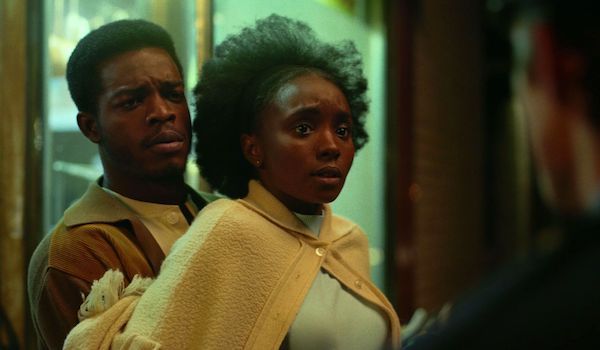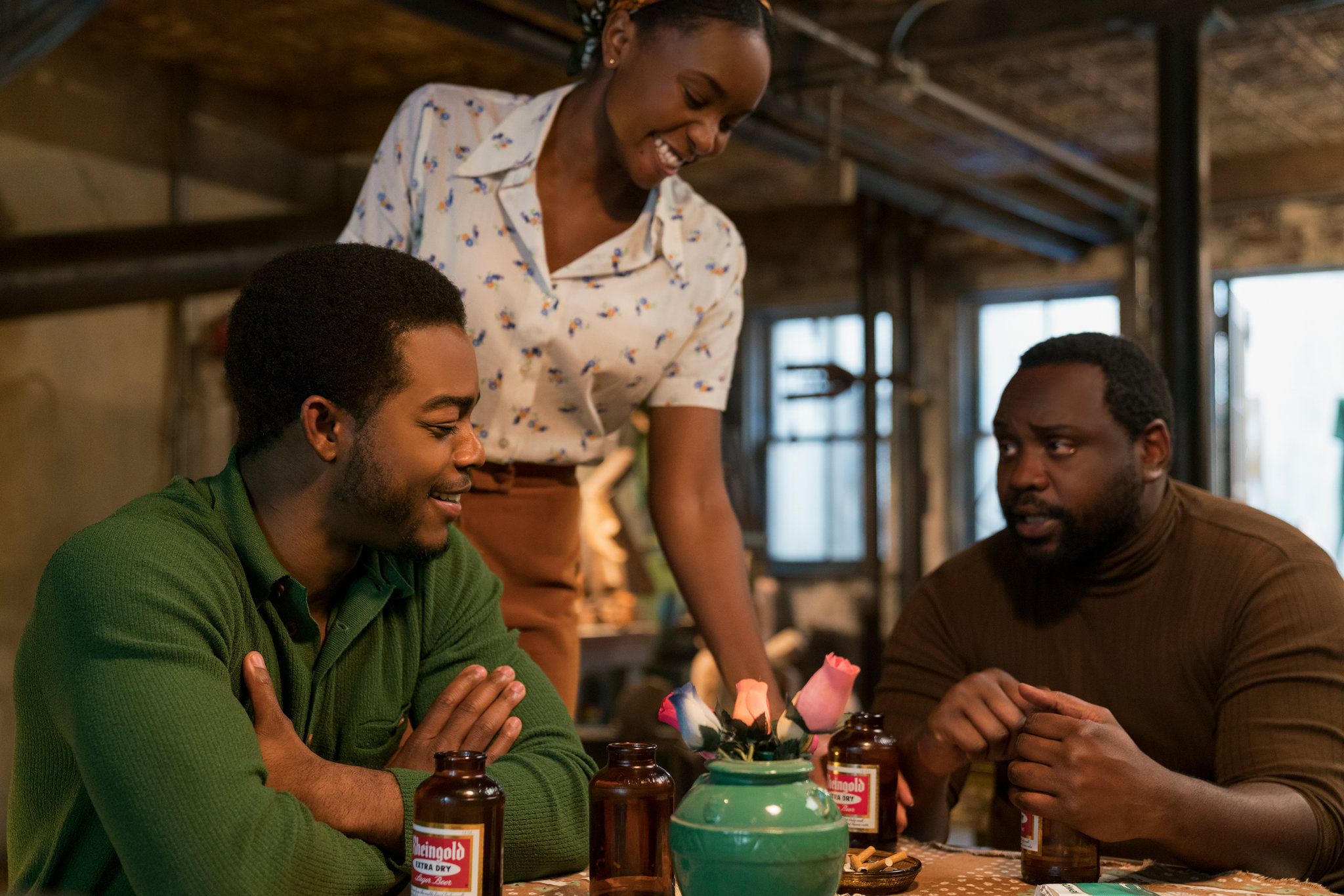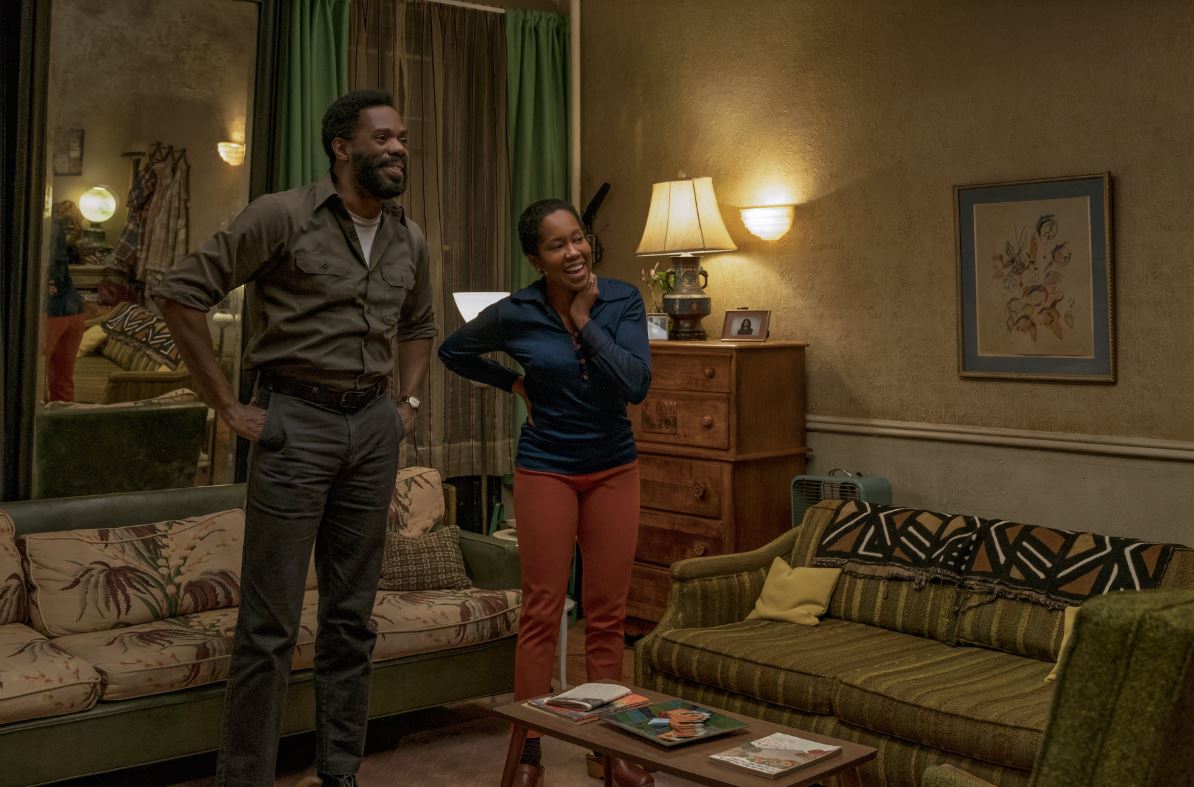
If Beale Street Could Talk starts with Tish (Kiki Layne) asking her boyfriend Fonny (Stephan James) “Are you ready for this?” I have been ready for a James Baldwin film adaptation for many years. Since I read "Giovanni’s Room" as a young teen and my mind was opened to queer stories. Since I was given "The Fire Next Time" to read as I made the decision to immigrate to the United States, so that I know what I was getting myself into. "Another Country" remains my favorite novel of all time. I am biased for Baldwin, for his writing, for his ideas, for his power, so I was excited for this film. I was also afraid. Will Barry Jenkins be able to interpret Baldwin’s howls of anger and despair as loud as I heard them reading Baldwin’s prose? I needn’t have worried.
Set in early-1970s Harlem, Beale Street is about how Fonny and Tish are separated when he’s arrested for a rape that he did not commit...
Tish, while pregnant with Fonny’s child, seeks the help of her parents Sharon (Regina King) and Joseph (Colman Domingo), and her sister Ernestine (Teyonah Parris) to try to prove Fonny’s innocence. All the while in flashback we see how they fell in love, and how a racist cop (Ed Skrein) framed him for this crime. It’s a love story but also a film of ideas about what it means to be born black in this country.
 Brian Tyree Henry in his long and riveting cameo
Brian Tyree Henry in his long and riveting cameo
The centerpiece scene of the film - think of it as a microcosm of the movie’s ideas and themes - is when Brian Tyree Henry appears as a friend of Fonny’s who has recently been released from prison for a trumped up charge. Watch him as he tells his story about how that experience broke him, and the historic toll of systemic injustice in this country comes to sharp and vivid light. In King’s big scene, Sharon confronts Fonny’s accuser demanding that the Latina woman (played by Emily Rios) retract her testimony. The scene shows us how these two women of color have the same oppressor. The system, the police, the white man. Yet they can’t help each other. It’s a loud cry against injustice.
In the midst of all this Jenkins has time to spend with his characters. With Sharon as she tries on a wig, with Joseph as he savors his daughter’s pregnancy and wishes for a boy, with Fonny and Tish as they inspect an apartment, have dinner, dance and make love. As an audience we feel the privilege of being privy to these moments. King and Domingo have a warm easy chemistry that enthralls, it is contrasted with the brittle conflicted relationship Fonny’s parents (Michael Beach and Aunjanue Ellis) have with each other; sometimes the toll of life in the system brings people together, sometimes it tears them apart.
 Colman Domingo & Regina King as Tish's parents
Colman Domingo & Regina King as Tish's parents
The love story is the framework for the story of systematic injustice that envelopes Tish and Fonny and prevents them from being together. And because of that, their love had to be otherwise all positive. Friends becoming lovers, taking care of each other, treating each other with tenderness as a beautiful revolt against the violence that threatens them. It’s also the framework that opens our hearts to the ideas that Baldwin wants us to understand with this story.
Director Barry Jenkins is aided by James Laxton’s beautiful cinematography, rich with light and color and by Nicholas Britell's precise and memorable yet reticent score. In adapting Beale Street, Jenkins absorbed Baldwin, his ideas and their power, and gave us a movie to cherish.